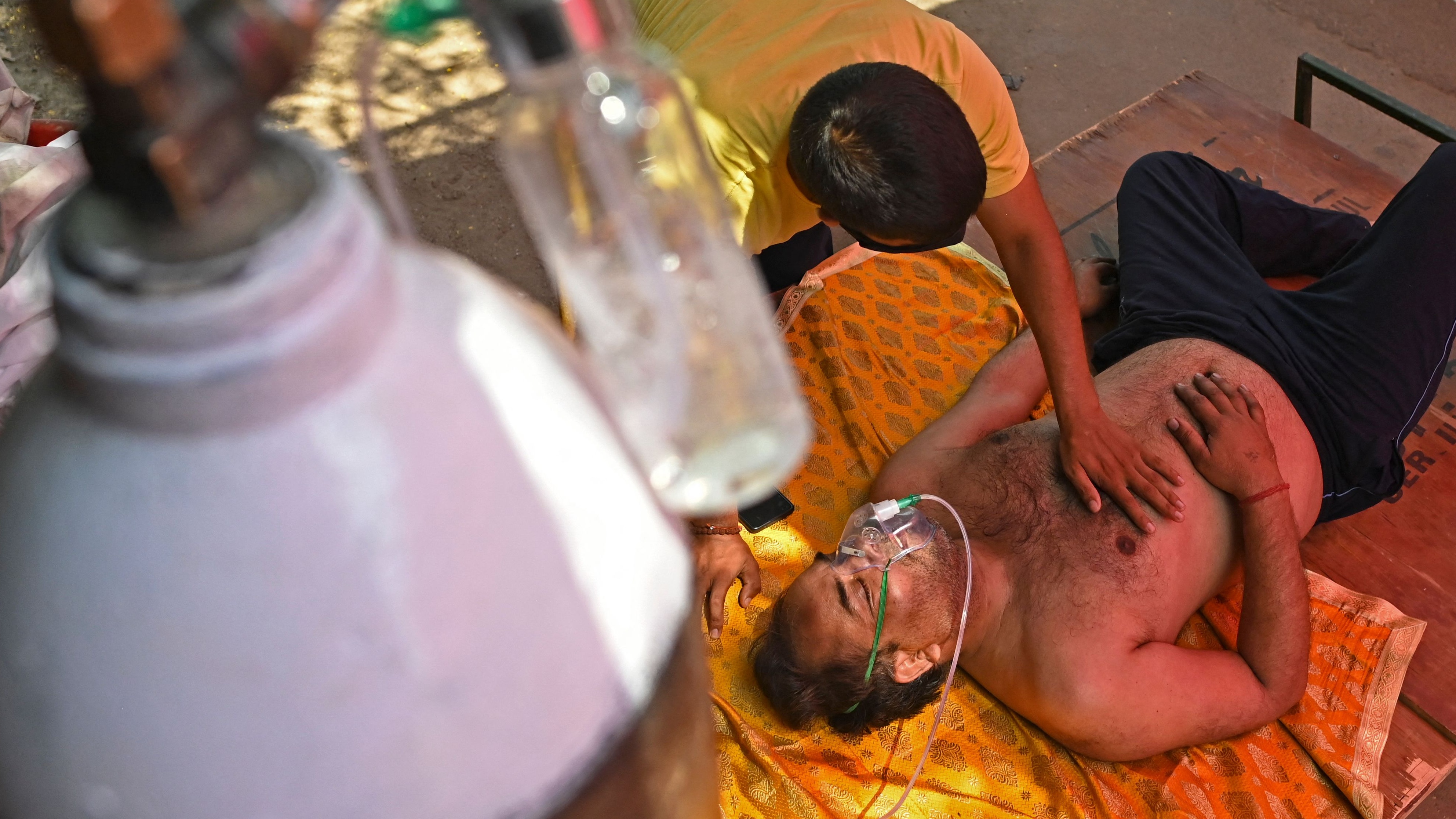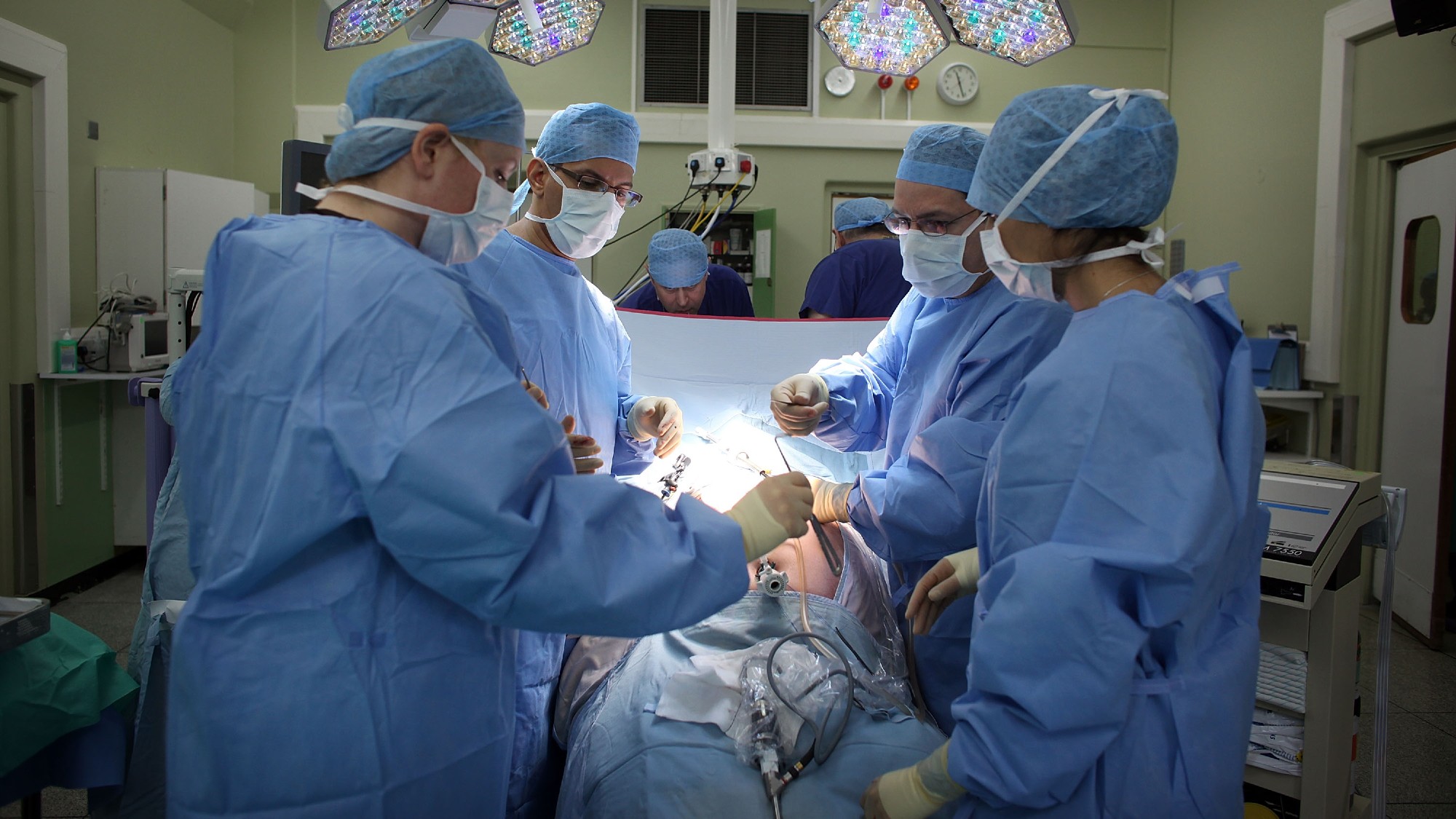The port city at the epicentre of India’s Covid catastrophe
Half of all people getting tested in Kolkata are positive for coronavirus

A free daily email with the biggest news stories of the day – and the best features from TheWeek.com
You are now subscribed
Your newsletter sign-up was successful
As India continues to break global records for daily new Covid cases, infection data emerging from Kolkata is fuelling fears that worse may be to come.
The Times of India reports that “every second person” taking a PCR Covid test in the eastern port city and its suburbs is getting a positive result, up from less than 20% at the start of April.
The steep hike comes amid warnings that city-wide lockdowns across the country will “send thousands of migrant workers back to their home villages, some carrying the virus with them”, The Telegraph says.
The Week
Escape your echo chamber. Get the facts behind the news, plus analysis from multiple perspectives.

Sign up for The Week's Free Newsletters
From our morning news briefing to a weekly Good News Newsletter, get the best of The Week delivered directly to your inbox.
From our morning news briefing to a weekly Good News Newsletter, get the best of The Week delivered directly to your inbox.
Tip of the iceberg
Covid is “killing thousands of people each day in major cities including Delhi and Mumbai”, The Telegraph reports, as a new double mutation of the coronavirus triggers a spike in infections.
India’s outbreaks now account for around 38% of global cases, up from 9% a month ago.
But while increasing case numbers are being reported nationwide, Kolkata is emerging as a new epicentre of the pandemic. A doctor in the city told The Times of India that local laboratories processing coronavirus tests “are reporting a positivity rate of 45% to 55%”.
A free daily email with the biggest news stories of the day – and the best features from TheWeek.com
In other parts of West Bengal, the state in which Kolkata is situated, positivity rates are “around 24%, up from 5% at the beginning of this month”, said the unnamed medic, a senior doctor at a state-run hospital.
And the actual positivity rates in both Kolkata and further afield “will be much higher”, the doctor warned, because there are “so many asymptomatic or mildly symptomatic patients who are not getting themselves tested”.
Kolkata is home to almost 15 million people but has “just under 1,500 beds” left unoccupied in the city’s hospitals, according to The Hindustan Times.
The surge in Covid cases has led “to a depletion of oxygen supply and shortage of antiviral remdesivir”, used to treat the coronavirus, prompting the authorities “to issue guidelines for their strict rationing”, says the paper.
Bhaskar Narayan Chaudhuri, a microbiologist at Kolkata’s Peerless Hospital, told The Times of India that “the high transmissibility of the mutant virus is infecting a large number of people in a short span of time”.
“In most cases, entire families are getting infected,” he added.
With medical services stretched to breaking point, some patients are dying in their homes after being unable to get a bed in hospital.
Bereaved families have told how they “called helpline numbers but did not receive any information about available hospital beds”, The Indian Express reports.
The bodies of Covid patients who died at home are also said to have been “left unattended for hours” as a result of delays by the authorities in charge of collecting them, the paper adds.
Rural spread
As the authorities in cities nationwide implement lockdowns in a bid to contain Covid outbreaks, the exodus of migrant workers returning to villages across India means the virus is “now spreading uncontrollably in its most vulnerable rural hinterland”, home to 800 million people, The Telegraph says.
“Decades of underfunding” have left rural communities “facing widespread shortages of oxygen, tests, medication, and, in many areas, a medical professional, creating a vacuum of critical care and leaving openings for quack doctors”, the paper reports.
And because Covid testing is limited, the full extend of rural infection rates can only be estimated, warns Motilal Sinha, a social activist in the district of Rajnandgaon in the central Indian state of Chhattisgarh.
“Today, the situation is that between 15% and 20% of people from every village in Rajnandgaon are Covid-19 positive, but these cases aren’t on any government record,” Sinha told The Telegraph. “They would only be revealed if house-to-house testing is done in villages.”
India’s “best hope for dampening the second wave is to vaccinate more”, says The Economist. An average of around three million doses of Covid vaccines are currently being administered each day, but in a country with a population of around 1.4 billion, “this is only a drop in the ocean”, the paper adds.
Latest Oxford University tracking shows that around ten per 100 people in India have received at least one dose so far. At that speed, “it will be next year before all adults are vaccinated”, The Economist calculates.
-
 Local elections 2026: where are they and who is expected to win?
Local elections 2026: where are they and who is expected to win?The Explainer Labour is braced for heavy losses and U-turn on postponing some council elections hasn’t helped the party’s prospects
-
 6 of the world’s most accessible destinations
6 of the world’s most accessible destinationsThe Week Recommends Experience all of Berlin, Singapore and Sydney
-
 How the FCC’s ‘equal time’ rule works
How the FCC’s ‘equal time’ rule worksIn the Spotlight The law is at the heart of the Colbert-CBS conflict
-
 A Nipah virus outbreak in India has brought back Covid-era surveillance
A Nipah virus outbreak in India has brought back Covid-era surveillanceUnder the radar The disease can spread through animals and humans
-
 How music can help recovery from surgery
How music can help recovery from surgeryUnder The Radar A ‘few gentle notes’ can make a difference to the body during medical procedures
-
 Covid-19 mRNA vaccines could help fight cancer
Covid-19 mRNA vaccines could help fight cancerUnder the radar They boost the immune system
-
 The new Stratus Covid strain – and why it’s on the rise
The new Stratus Covid strain – and why it’s on the riseThe Explainer ‘No evidence’ new variant is more dangerous or that vaccines won’t work against it, say UK health experts
-
 RFK Jr. vaccine panel advises restricting MMRV shot
RFK Jr. vaccine panel advises restricting MMRV shotSpeed Read The committee voted to restrict access to a childhood vaccine against chickenpox
-
 RFK Jr. scraps Covid shots for pregnant women, kids
RFK Jr. scraps Covid shots for pregnant women, kidsSpeed Read The Health Secretary announced a policy change without informing CDC officials
-
 New FDA chiefs limit Covid-19 shots to elderly, sick
New FDA chiefs limit Covid-19 shots to elderly, sickspeed read The FDA set stricter approval standards for booster shots
-
 RFK Jr.: A new plan for sabotaging vaccines
RFK Jr.: A new plan for sabotaging vaccinesFeature The Health Secretary announced changes to vaccine testing and asks Americans to 'do your own research'